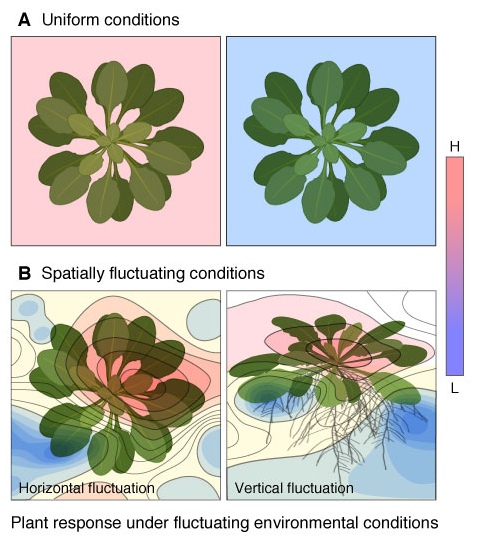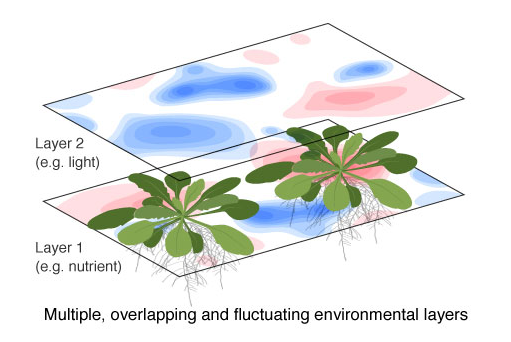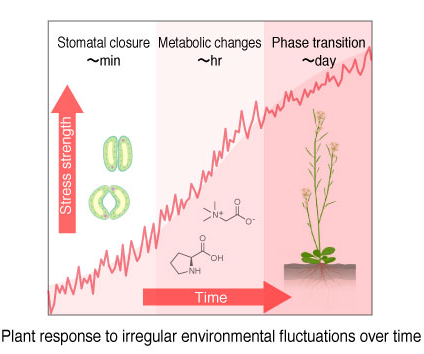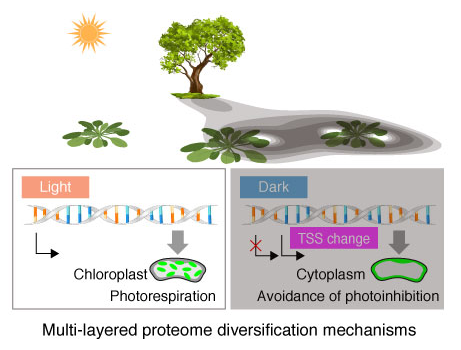English
Grant-in-Aid for Transformative Research Areas (A)
Multi-layered regulatory system of plant resilience under fluctuating environment

MATSUSHITA Tomonao
(Kyoto University, Graduate School of Science, Professor)
Plants are exposed to constantly fluctuating environments where they sprout. Attributes of their environment, such as soil nutrients and leaf-filtered sunlight, display mosaic-type spatial fluctuations, and are accompanied by irregular fluctuations across time, such as in degree of dryness. Research to date has been limited to analysis of single-environment response under uniform conditions, and has not elucidated multi-layered adaptive mechanisms in intrinsically fluctuating, compound environments. By focusing on molecular mechanisms that regulate fluctuating temporal and spatial environmental information, and the proteome diversification mechanisms supporting them, this research project will seek to elucidate the nature of plant environmental resilience, and revolutionize research into biological adaptation to the environment.

This transformative research project will seek to understand the robust as well as the characteristically flexible dynamic adaptive capacity that plants demonstrate under fluctuating environmental conditions—that is, their environmental resilience mechanisms—by introducing three original perspectives actually seen in natural environments: 1) spatial fluctuations; 2) irregular fluctuations over time; and furthermore, 3) multi-layered proteome diversification mechanisms, including changes in transcription start sites, as a molecular basis supporting adaptive capacity in fluctuating temporal and spatial environments
1) Spatial fluctuations

2) Irregular fluctuations over time

3) Multi-layered proteome diversification mechanisms

Elucidation of the molecular mechanisms supporting plant environmental resilience should establish concepts that give rise to new research currents. Moreover, this research project will promote the development of young researchers who can play active international roles. In addition, it should generate results that will contribute to structuring basic technologies for solving food supply and energy problems in the future. These researches could also facilitate understanding of biological systems for regulating a wide range of environmental information.
